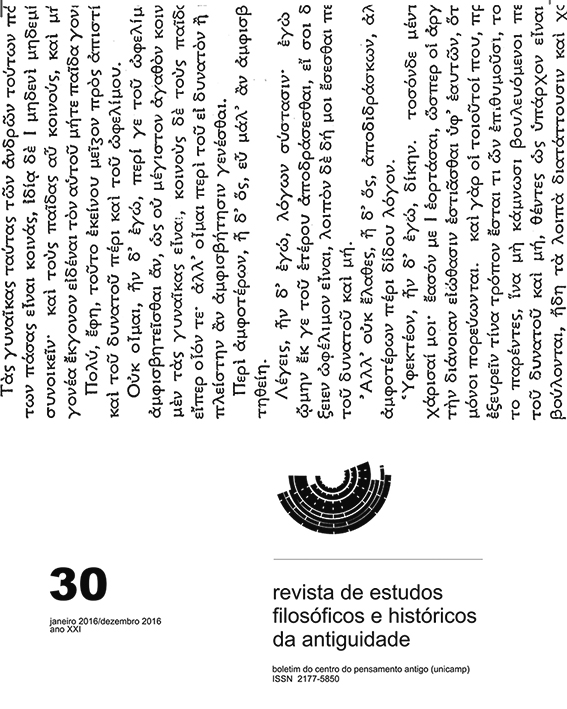Resumo
Podemos dizer que a história da Índia é permeada pela investigação do que é o “eu”, e essa investigação ontológica e metafísica, na maioria das vezes, desenvolveu-se em uma multiplicidade de práxis. Entretanto, entre quase todos os desenvolvimentos filosóficos relacionados com essa questão, um conceito permanece central: o conceito de saṃsāra. Etimologicamente, saṃsāra une as palavras sama (igual/mesmo) e sarati (flui), isto é, significa um “contínuo fluir”. Considerando os meandros da causalidade, seria então possível ir além da existência condicionada, agora entendida como “contínuo vagar”. O tempo, dessa maneira, não é entendido como uma finitude necessária: ele se torna uma continuidade inescapável.
Referências
AKIRA, H. A History of Indian Buddhism: From Sakyamuni to Early Mahayana. Motilal Barnasidass Publishers, 1993.
GOMEZ, L. O.; SILK, J. A., Studies in the Literature of the Great Vehicle: Three Mahayana Buddhist Texts. Ann Arbor, 1989.
JAINI, P. Collected Papers on Buddhist Studies. Motilal Barnasidass Publishers, 2001.
JAYATILLEKE, K.N. Early Buddhist Theory of Knowledge. Motilal Barnasidass Publishers, 1963.
MCEVILLEY, T. The Shape of Ancient Thought: Comparative Studies in Greek and Indian Philosophies. New York: Allworth Press, 2002.
NAKAMURA, H. Indian Buddhism: A Survey with Bibliographical Notes. Motilal Barnasidass Publishers, 1999.
SCHUMANN, H.W., The Historical Buddha – the times, life and teachings of the founder of Buddhism, Buddhist Tradition Series, vol. 51, Motilal Banarsidass Publishers PVT. LTD.
STORY, F. Dimensions of Buddhist Thought: Collected Essays. The Wheel Publication No. 212–4, 1975.
THURMAN, R. Essential Tibetan Buddhism. Harper One, 1996.
WILLIAMS, P. Mahayana Buddism: The Doctrinal Foundations. Routledge, 2009.
ZIMMER, H. Filosofias da Índia. São Paulo: Editora Palas Athena, 1986.

Este trabalho está licenciado sob uma licença Creative Commons Attribution-NonCommercial-NoDerivatives 4.0 International License.
Copyright (c) 2017 Revista de Estudos Filosóficos e Históricos da Antiguidade
